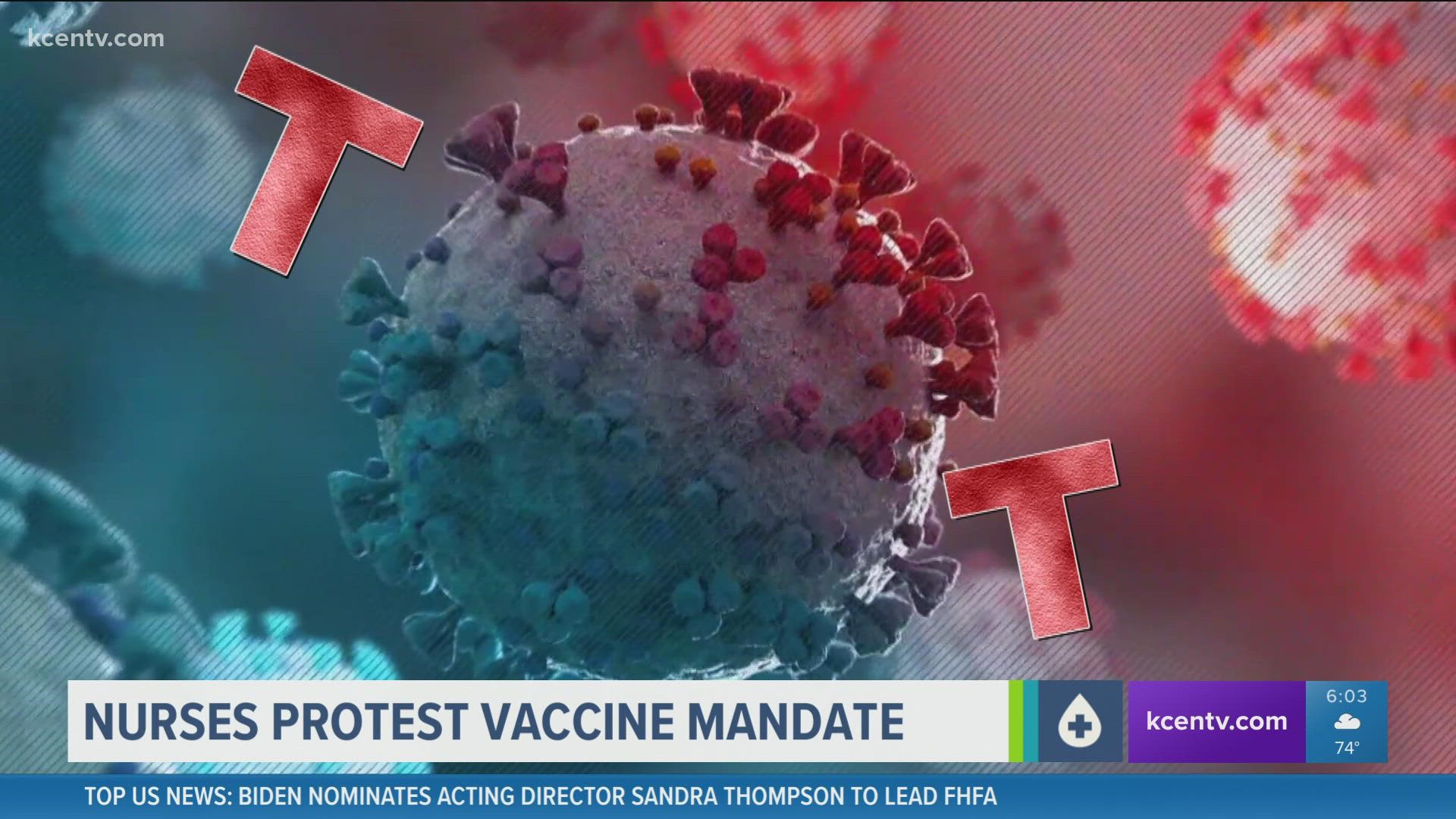KILLEEN, Texas — As of Tuesday, the CDC reported finding the COVID-19 omicron variant in 37 states across the nation and current vaccines are expected to be significantly less effective.
Yet, at the same time, the CDC recommends that everyone ages 18 years and older should get a booster shot at least two months after their initial Johnson & Johnson vaccine or six months after both doses of either Pfizer or Moderna.
So why are the current vaccines less effective and how will the booster help?
"This virus structurally looks the most different than any of the variants that we've seen with COVID-19," Texas A&M Central Texas Department of Nursing Director Amy Mersiovsky said. "There is still a lot of questions about this new variant. How sick will people be and how will the new vaccines hold up?"
The main issue with the current vaccines is the difficulty the body has in detecting the virus.
The Pfizer and Moderna vaccines help fight the virus by training a person's body to create specific cells, called B cells and T cells, which identify COVID-19 by the proteins on the viral particle's surface. The vaccines help generate the same kind of proteins that would be found on the virus in the body. This allows the body's immune system to kick in for a "practice round" at removing those foreign proteins without the threat of the actual virus.
Those spike proteins can mutate in subsequent viruses to a point where some of them no longer resemble those "practice round" proteins the body's immune system is looking for. If that happens, the B and T cells can no longer find the virus.
According the to CDC website, "The spike protein is the primary target of vaccine-induced immunity. The Omicron variant contains more changes in the spike protein than have been observed in other variants, including 15 in the RBD. Based on the number of substitutions, the location of these substitutions, and data from other variants with similar spike protein substitutions, significant reductions in neutralizing activity of sera from vaccinated or previously infected individuals, which may indicate reduced protection from infection, are anticipated."
As explained by Mersiovsky on Tuesday, the Omicron variant has more mutations than previous COVID-19 variants by a large margin.
"They are seeing about 50 mutations not seen in combination. And that's 30 more mutations than were seen on the Delta variant. It has greatly changed," Mersiovsky said.
This means a spike protein on the Omicron virus could have changed in up to 50 ways compared to the original COVID-19 virus.
Mersiovsky also said different proteins on each viral particle of Omicron would be mutated in different combinations. Some could still resemble the proteins on the original virus others will not.
"That's the big concern, even with people who have already had a COVID-19 infection," Mersiovsky said. "Will the immune system still recognize this new version of the virus?"
So why, then, would a booster shot of the same vaccine be helpful in this situation?
The answer: The more immune system cells looking for the original virus, the better.
Even after being completely vaccinated, the number of B and T cells in the body looking for COVID-19 is reduced over time. A booster shot will increase the number of cells looking for COVID-19 proteins which increases the chance a cell would come in contact with a less-mutated spike protein on an Omicron particle. Mersiovsky also told 6 News the latest research shows fully vaccinated individuals also become more susceptible to the Delta variant over time, which also warrants a booster shot.
"Even with Delta the immune response was looking very low after six months," Mersiovsky said.
Of course, the vaccine cannot continue to be less and less accurate forever. Mersiovsky believes there will eventually need to be an updated shot to deal with new variants. That conversation, she said, has already started.
"There will be lots and lots of infectious disease professionals and scientists getting together constantly and meeting about what they are seeing, and seeing in other parts of the world. They are already thinking about what we need to do next," Mersiovsky said.

